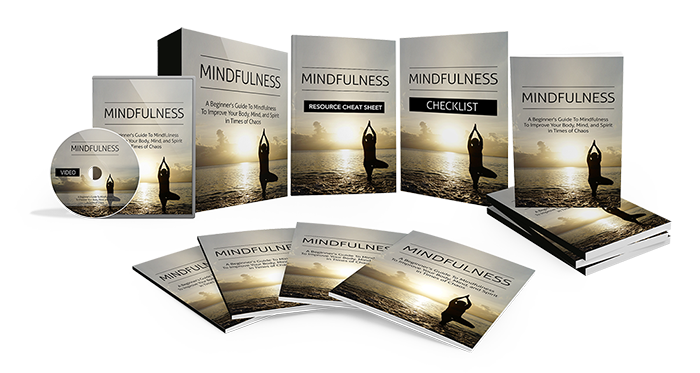Mindfulness is the practice of being fully present and engaged in the present moment, without judgment. It involves paying attention to your thoughts, feelings, bodily sensations, and the environment around you. By cultivating mindfulness, you can reduce stress and enhance your overall quality of life. In this article, we’ll explore the benefits of practicing it for stress reduction and provide practical tips for incorporating it into your daily routine.
In today’s fast-paced world, stress has become an inevitable part of our lives. Whether it’s work-related pressure, personal issues, or the constant bombardment of information from technology, stress can take a toll on our mental and physical well-being. However, there is a powerful tool that can help alleviate stress and improve overall well-being: mindfulness.
Benefits of Mindfulness for Stress Reduction
- 1. Reduced Rumination: Mindfulness helps to break the cycle of negative thinking that can lead to stress and anxiety. By focusing on the present moment, you can alleviate the constant rumination on past events or worries about the future.
- 2. Improved Emotional Regulation: Mindfulness allows you to observe your emotions without becoming overwhelmed by them. This can help you manage stress and respond to challenging situations with greater clarity and composure.
- 3. Lowered Cortisol Levels: Cortisol is the body's primary stress hormone, and chronically high levels can have a negative impact on your health. It has been shown to lower cortisol levels, reducing the physical toll that stress can take on the body.
- 4. Enhanced Resilience: By practicing mindfulness, you can develop greater resilience in the face of adversity. It helps you cultivate a sense of inner strength and adaptability, allowing you to bounce back from stressful events more effectively.
- 5. Improved Focus and Concentration: Mindfulness can sharpen your focus and concentration, helping you to better manage the demands of daily life and work. This can reduce the feeling of being overwhelmed and stressed by the multitude of tasks and responsibilities.
Practical Tips for Practicing Mindfulness
- Start with Short Sessions: Begin by setting aside just a few minutes each day to practice it. You can gradually increase the duration as you become more comfortable with the practice.
- Focus on Your Breath: One of the simplest ways to practice it is to focus on your breath. Take a few minutes to simply observe your breath as it moves in and out of your body. This can help anchor you in the present moment and calm your mind.
- Engage in Mindful Activities: You can incorporate it into your daily activities, such as eating, walking, or even washing the dishes. Pay attention to the sensations, sounds, and smells associated with these activities, fully engaging your senses in the present moment.
- Use Mindfulness Apps: There are numerous apps available that can guide you through meditation and mindfulness practices. These can be a helpful resource for those new to mindfulness or looking for guided sessions.
- Practice Gratitude: Cultivating a sense of gratitude can be a powerful tool for reducing stress. Take a few minutes each day to reflect on the things you are thankful for, fostering a positive and resilient mindset.
Conclussion
Incorporating mindfulness into your daily routine can have profound effects on your stress levels and overall well-being. By reducing rumination, improving emotional regulation, and enhancing resilience, it can help you navigate the challenges of life with greater ease and grace. With the practical tips provided, you can begin to cultivate it in your daily life and experience the benefits for yourself.
Click on the image below to visit our Course:
Click on the link to know more about Affirmations and Mindfulness
And click on the link to visit LiberaTen.net







